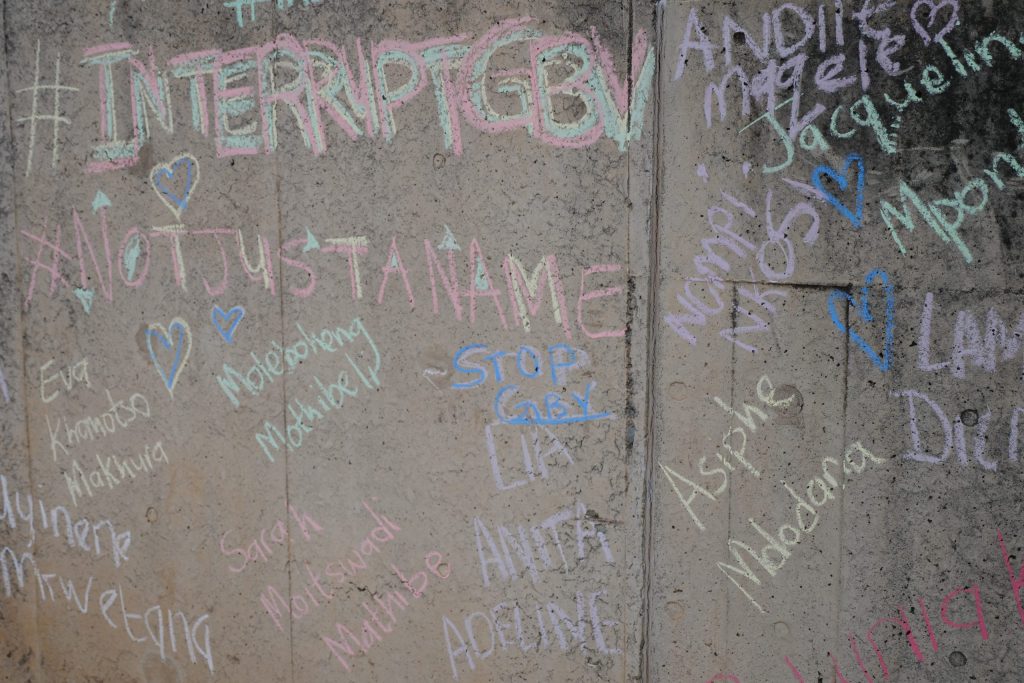After 28 years of freedom, not everyone in South Africa is safe, especially women and girls who continue to face horrendous incidents of violence, Amnesty International South Africa said today.
“While there have been many freedoms gained since 1994, women and girls are still not free from the shackles of gender-based violence and femicide. Despite the adoption by the government of the National Strategic Plan (NSP) on Gender-Based Violence and Femicide (GBVF) in 2019 to strengthen its response to the high incidence of gender-based violence, cases of GBVF continue to soar. The plan is not being adequately implemented, with the government failing to reach or report on many of the indicators and targets set out in the first year of its implementation” Amnesty International South Africa Executive Director Shenilla Mohamed said.
The quarterly crime statistics released in February showed that 11,315 people were raped between October and December 2021, and these were only cases of rape that were reported to the police.
“The state does not seem to be taking the second pandemic of GBVF seriously, despite making several commitments to help fight the scourge,” Shenilla Mohamed said.
According to Amnesty International’s Annual Report, in 2021, there were 117 cases of femicide in the first half of the year alone. There were 14,188 reported cases of sexual offences between October and December 2021.
In 2020, the government committed to reducing the GBVF related forensic cases backlog from 16,000 to 5,000 by March 2020. However, this skyrocketed to 82,000 cases during 2021/2022 and there is still an entire DNA backlog of 58,000 cases, delaying justice for victims and survivors of GBVF.
This is the case for the families of Popi Qwabe and Bongeka Phungula. One Friday night in May 2017, Popi and Bongeka were shot dead and their bodies dumped by the side of the road in Johannesburg. At some point that evening, the pair hailed a minibus taxi and were not heard from again. Following a frantic search at hospitals and police stations, the horrific truth was discovered. Full forensic evidence reports have never been released and the police investigation that followed was, according to the family, riddled with mistakes. They may also have been raped before they were killed. The families claim the police did not check for fingerprints and that the phones belonging to the two girls were never traced. Two suspects who had been apprehended in connection with their deaths were later released and the case was struck off the roll.
In the four years since the murders, no thorough investigation has taken place, leaving the families in the dark with no hope of justice being served.
In 2020, Amnesty International highlighted Popi and Bongeka’s case during the annual Write for Rights campaign, and the investigation into their murders was reopened, bringing their families one step closer to justice. Over 341,000 Amnesty supporters signed the petition to demand this. The matter is now with the National Prosecuting Authority.
While parliament adopted three new bills to strengthen the protection against GBVF earlier this year, we continue to see horrific cases of GBVF.
“It is shocking that most victims or their families do not receive justice. Fighting GBVF is a collaborative effort. We need to focus on changing social and cultural norms within society, the justice system needs to play its part in ensuring that there are consequences for these crimes and accountability is needed from the state when it comes to ensuring that everyone living in the country is safe,” Shenilla Mohamed said.
“It is difficult to celebrate Freedom Day when so many people in South Africa are not safe and there is little regard for the right to life.”
Background
Freedom Day is a national day in South Africa and is celebrated annually on 27 April. It celebrates freedom and commemorates the first post-apartheid elections held on that day in 1994.
The elections were the first non-racial elections where everyone of voting age from any racial group were allowed to vote. Previously, under the apartheid regime, non-whites had only limited rights to vote.
Amnesty International South Africa launched the third phase of its gender-based violence campaign, #InterruptBrokenPromises on 19 April 2022.
It is time to #InterruptBrokenPromises by demanding:
- The immediate establishment of the National Council on Gender-Based Violence and Femicide, including the development of a costed and funded operational plan.
- The DNA backlog of 58,000 cases is cleared by the end of September 2022, as publicly committed to by Minister for Police Bheki Cele on 24 March 2022.
- The immediate rollout of appropriate, mandatory and continuous victim-centric training for personnel in the criminal justice system, increased transparency about how many people have been trained, and the impact of the training.
- For clear, measurable annual performance targets to be developed for every indicator of the National Strategic Plan on GBVF, and for this information to be made publicly available.
- For transparent, timely, accurate and regular progress reports to be made public and accessible on a bi-annual basis by all relevant government departments on the implementation of the above indicators and aligning their performance and targets across all annual performance plans, annual reports and the National Strategic Plan on GBVF.
For more information or to request an interview, please contact:
Genevieve Quintal, Media and Communications Officer, Amnesty International South Africa: +27 (0)64 890 9224; genevieve.quintal@amnesty.org.za
Public Document
****************************************
Amnesty International South Africa office, 97 Oxford Road, Saxonwold, Johannesburg, 2196
press@amnesty.org


